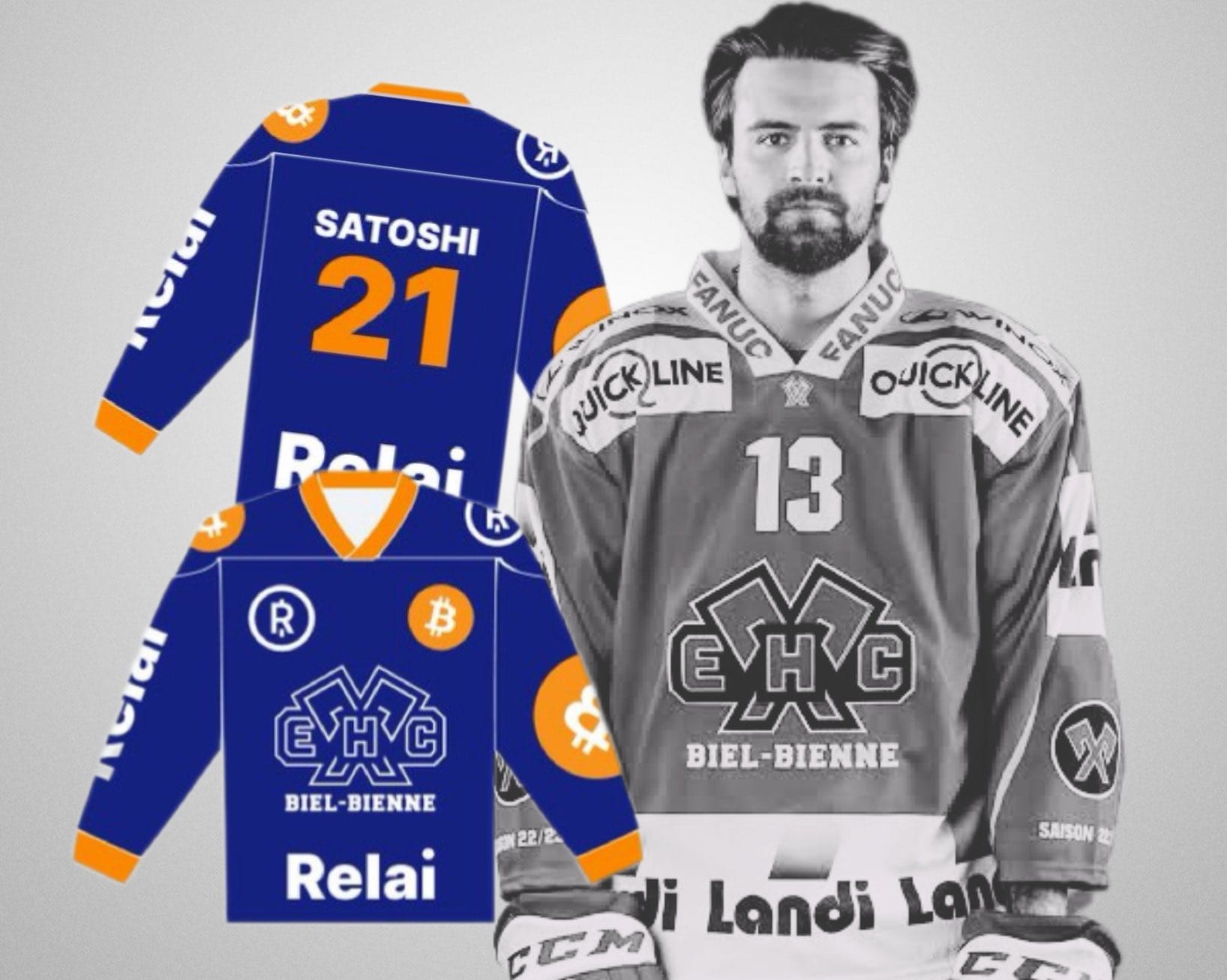If Bitcoin is 100% proof-of-work, an athlete's career is about 10% dependent on talent and 90% on hard work throughout their career, highlighting a strong connection between the two. During their careers, athletes rarely have time to manage finances or investments, so they often entrust their wealth to financial advisors, managers, or brokers. It’s common for athletes to reach the end of their careers and then realize that their financial management was misdirected, leaving them unprepared for challenges and at risk of devaluing or even losing their hard-earned assets. Why should athletes have to worry about finances when they could be fully focused on maximizing their potential?
Research shows that a significant percentage of athletes lose most or even all their wealth within a few years after retiring, especially those who earn large sums during their careers. Here are some examples:
NFL (American Football): A Sports Illustrated study from 2009 reported that 78% of NFL players experience financial difficulties or bankruptcy within two years of retirement. This alarming statistic highlights the financial challenges American football players face post-career.

NBA (Basketball): The same study showed that approximately 60% of NBA players go bankrupt or face financial problems within five years of retirement. Given the short average NBA career of about 4-5 years, it’s challenging to establish a stable financial foundation without careful wealth management.

Soccer: Although specific studies on European soccer players are limited, some reports suggest that they, often face financial trouble after retirement. According to England’s Professional Footballers’ Association (PFA), about 40% of soccer players in England experience financial difficulties within a few years post-career.
Other Sports: Athletes in individual sports, such as tennis, golf, boxing, skiing, and motorsports also face significant financial challenges. Studies show that boxers in particular, have high rates of financial hardship after their careers, with over 70% losing most of their wealth due to poor financial management, high expenses, and a short active career.

The primary reasons for this loss of wealth include poor financial management, high living costs, lack of financial literacy, failed investments, and a lack of long-term wealth preservation strategy.
The Potential of Bitcoin as a Solution
Traditional financial systems can limit athletes’ financial growth due to inflation, currency instability, and limited access to global investment opportunities. Bitcoin has recently gained attention as a long-term store of value, with many seeing it as a hedge against inflation and currency instability. Bitcoin also has another unique quality: as hard money it is harder to spend it impulsively, unlike traditional fiat currencies, which may deplete more quickly.
Why Bitcoin?
Bitcoin is a decentralized digital currency that operates without a central authority or intermediaries. Its unique feature is its limited supply — only 21 million bitcoins will ever exist, meaning it can’t be created at will, unlike traditional currencies managed by central banks. This deflationary feature makes Bitcoin a store of value, protected from devaluation. Since athletes are often exposed to currency fluctuations, tax burdens, and uncertainties about their financial future post-career, Bitcoin offers an attractive alternative for long-term financial stability.

Benefits that Bitcoin Offers Athletes
- Wealth Preservation: Since Bitcoin is designed to maintain its value regardless of inflation, it’s a safe haven for long-term investors. Athletes can protect their earnings from the eroding power of traditional currency by converting part of their wealth into Bitcoin.
- Easy Transfer and Mobility of Funds: Athletes who travel globally or relocate between countries can transfer their wealth with Bitcoin, free from geographical restrictions or high bank fees, giving them complete control over their wealth wherever they live.
- Investment Growth: Although volatile, Bitcoin has proven one of the most profitable assets over the last decade. Athletes willing to accept a certain level of risk can see substantial long-term growth in their wealth. The “HODL” strategy (buying and holding Bitcoin long-term) has proven profitable for many investors. Historically, Bitcoin’s value has shown a general upward trend over time.
- Protection in Times of Political and Economic Crises: As a global asset, Bitcoin isn’t tied to the stability of any single country. Athletes from regions with high political or economic instability can protect themselves against potential currency collapse, maintaining their wealth regardless of events in their country.
- Censorship Resistance and Full Ownership: In many countries, governments can freeze or restrict access to personal bank accounts and funds. Bitcoin, however, operates without central authority, meaning no institution or government can interfere with athletes' personal ownership. With Bitcoin, athletes retain full control over their wealth.

Practical Steps for Athletes
- Education and Market Understanding: Before entering the cryptocurrency market, athletes must understand Bitcoin and the factors influencing its price. With the proper understanding, athletes can make informed decisions and manage risks effectively.
- Portfolio Diversification: Experts often recommend that athletes invest part of their wealth in Bitcoin while maintaining a diversified portfolio to balance stability and growth over time.
- Storage in Secure Digital Wallets: Bitcoin should be stored in secure digital wallets (e.g., hardware wallets) that allow private access to funds, providing more security than hot wallets or intermediaries and reducing risks of hacking, seizure, or theft.
- Consultation with Financial Advisors and Bitcoin Experts: Competent financial advisors can help athletes develop long-term strategies for managing Bitcoin investments and optimizing tax obligations. Bitcoin experts can provide insights into specific market trends and help with timing purchases.
Prominent Athletes Investing in Bitcoin
Several well-known athletes have publicly acknowledged holding Bitcoin as an investment, viewing it as an opportunity for long-term growth and wealth protection.
- Russell Okung (NFL): The former NFL player was one of the first to publicly support Bitcoin, becoming the first NFL player to receive part of his salary in Bitcoin in 2020.
- Tom Brady (American Football Player) – The famous American football player and Super Bowl champion has expressed his interest in Bitcoin and investing in cryptocurrencies. Although Brady became an ambassador for the now-defunct FTX exchange and was involved in promoting other cryptocurrencies, which led to a loss of credibility as everything was revealed to be a scam or failed investment, he has publicly confirmed that he personally buys and holds Bitcoin, seeing it as an opportunity for the future.
- Aaron Rodgers (NFL): The NFL star announced that he would receive part of his salary in Bitcoin, viewing it as a hedge against inflation.
- Francis Ngannou (MMA): The UFC champion announced plans to receive his next paycheck in Bitcoin, believing that Bitcoin provides better financial opportunities for athletes with shorter careers.
- Saquon Barkley (NFL): Barkley announced he would convert all his sponsorship earnings into Bitcoin to secure long-term financial stability.
European Athletes and Bitcoin
European athletes, such as Antoine Griezmann, Kevin-Prince Boateng, Axel Witsel, and David de Gea, have also publicly shown interest in Bitcoin, viewing it as a future-oriented investment.
Clubs Pioneering Bitcoin Use in Europe
European clubs, including Botev Plovdiv (Bulgaria), EHC Biel-Bienne (Switzerland), and FC Lugano (Switzerland), are pioneering Bitcoin adoption. These clubs have started accepting Bitcoin for payments and exploring innovative financial models integrating Bitcoin.

The Impact of These Clubs on the Bitcoin Standard in Sports
Though these clubs aren’t fully on the Bitcoin standard, their initiatives show that Bitcoin-based innovations are emerging in European sports. Their actions have contributed to awareness among fans and the public, potentially accelerating Bitcoin’s broader adoption. Over time, these moves are likely to offer a competitive advantage.

Challenges and Opportunities
All the clubs mentioned have partially integrated Bitcoin, mainly for fan payments, which still relies on traditional finance systems. This interest opens doors for broader Bitcoin integration in sports organizations, potentially leading to Bitcoin-based business models.

Of course, there is still a long way to go toward full adoption. If clubs will hold Bitcoin in their treasuries and fully leverage its potential, it will provide a tremendous advantage over their competition, potentially allowing them to compete more effectively against wealthier rivals. Ultimately in the long term, what matters most is the type of money you hold, not just how much of it you have.
Bitcoin as a Long-Term Investment for Athletes
Bitcoin’s independence, scarcity, and digital nature make it an attractive option for athletes seeking long-term stability. While the market is volatile, Bitcoin offers strong growth potential for those investing with a long-term perspective. With thoughtful planning and investment, Bitcoin could become a powerful pillar of financial security, providing athletes a means to preserve their earnings and retain full control of their assets in the post-career phase.


Articles and translations for the blog on the website are written by various members, supporters, and groups of individuals in the Bitcoin Slovenia group. These do not constitute any financial advice. Everyone has their own view on the technology, Bitcoin, and existing systems. The society provides a platform to share these views with a wider audience. You can join our society at bitcoin.si, on our Telegram group, or in the "Kriptovalute — Slovenska Blockchain Skupnost — Bitcoin.si" group on Facebook.

Bitcoin SLO
Bitcoin društvo Slovenije je ustanovljeno z namenom, da povežemo slovensko kripto skupnost, organiziramo dogodke, odgovarjamo na vprašanja ter pomagamo posameznikom. Več info: https://bitcoin.si
follow me :




Related Posts
Inflacija: Skriti davek, ki požira vašo kupno moč – kako jo premagati s trdnim denarjem - Burek zgodba
Feb 15, 2026
Mediji lažejo o Bitcoinu — resnica o pranju denarja, ki jo skriva finančni sistem
Feb 08, 2026
Kako kripto kartice in bitcoin plačila v EU in Sloveniji ne delujejo - Regulacije in davki kot glavni krivci
Feb 06, 2026